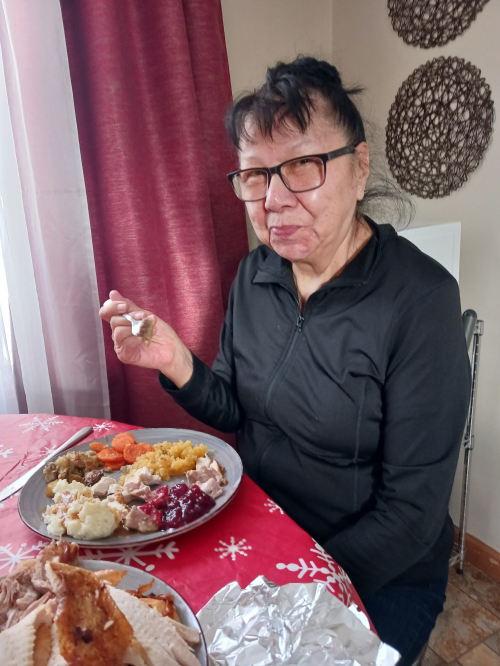SUDBURY—In a bold move to confront systemic inequities in healthcare, Dr. Mustafa Hirji Medical Officer of Health and Chief Executive Officer for Public Health Sudbury and Districts (PHSD) has unveiled the “Unlearning and Undoing White Supremacy and Racism” project, alongside Sarah Rice, special adviser, Indigenous affairs and Jasmine Fournier, health promoter, Indigenous engagement.
The project was first introduced by the Provincial Health Services Authority of British Columbia. This innovative program aims to tackle the health disparities caused by colonization and white supremacy—critical determinants of health that have long been overlooked.
Dr. Hirji emphasizes that colonization, defined as the control exerted by one nation over another, systematically normalizes poor health outcomes for Indigenous peoples and other marginalized groups. The project seeks to adapt the foundational concepts of the initiative to the local context, ensuring its relevance and effectiveness.
The strategy draws from the “Coin Model of Privilege and Critical Allyship,” a framework outlined in BMC Public Health that highlights how social systems create both unearned advantages (privilege) and disadvantages (oppression). The article stresses that health inequities are rooted not just in individual behaviours or genetics but in the broader socio-political landscape that often privileges certain groups while disadvantaging others.
“Understanding our privilege is essential for enacting real change,” Dr. Hirji asserts. “It’s not enough to simply acknowledge the existence of disparities; we must also recognize the systems that perpetuate them. This project is about moving from a mindset of ‘helping’ disadvantaged groups to a collective effort to dismantle the structures that create and sustain inequality.”
The initiative’s first module focuses on illuminating three interrelated systems of oppression prevalent in Canada: white supremacy, settler colonialism and Indigenous-specific racism. By making these frameworks visible, the project aims to foster a shared understanding and vocabulary among participants, encouraging critical discussions around anti-racism.
However, the impact of these systems extends far beyond marginalized communities; they affect nearly everyone, often in ways we may not fully recognize. The intersections of oppression—such as classism, ableism, heterosexism, cisgenderism and sexism—create a complex web of inequality that shapes our social landscape. For instance, a person may experience multiple layers of marginalization that compound their challenges, such as an Indigenous woman facing both racism and sexism, or a disabled individual navigating the barriers of ableism alongside economic hardship.
These intersecting systems of oppression not only disadvantage certain groups but also create a society where privilege and marginalization are deeply intertwined. Many individuals may benefit from unearned advantages associated with their identities—whether that be due to race, gender, sexual orientation or socio-economic status—without recognizing how these privileges contribute to systemic inequalities. This lack of awareness can perpetuate cycles of discrimination and limit opportunities for genuine allyship and collaboration.
By engaging with these frameworks, participants are encouraged to reflect on their own positionality within these systems. Understanding that oppression and privilege are not just issues for marginalized groups to address can lead to a more collective and inclusive approach to dismantling inequality. The project emphasizes that recognizing these intersections is crucial for fostering solidarity across diverse communities and for creating meaningful change.
Ultimately, the aim is to cultivate a deeper awareness of how these intersecting systems impact health outcomes, social justice and the overall fabric of Canadian society. By promoting critical discussions, the initiative aspires to inspire participants to actively engage in the ongoing work of unlearning and undoing these oppressive structures, fostering a more equitable and inclusive future for all.
Consultation for the project included a range of key documents, including the ‘Indigenous Engagement Strategy: Finding Our Path Together,’ the ‘ReconciliAction Framework,’ and the ‘Racial Equity Action Framework.’ Additionally, the Strategic Plan: 2024–2028, the Royal Commission on Aboriginal Peoples (1996) recommendations, and the United Nations Declaration on the Rights of Indigenous Peoples (2007) served as foundational resources. The project also incorporates insights from the Truth and Reconciliation Commission’s 94 Calls to Action and the Missing and Murdered Indigenous Women and Girls (MMIWG) 231 Calls for Justice.
The project is based on the work of Dr. Ibram X. Kendi, a leading scholar in antiracist research, emphasizing the distinction between being “not racist” and actively working as an antiracist. Kendi’s work urges individuals to approach antiracist efforts with vulnerability, fostering self-reflection and deeper engagement in dismantling racism.
The ‘Unlearning and Undoing White Supremacy and Racism’ project stands as a pivotal step in addressing the long-standing health inequities faced by Indigenous and marginalized communities. As Dr. Hirji and his team continue to push for systemic change, the hope is that this initiative will inspire similar movements across the nation, fostering a more equitable healthcare landscape for all.






